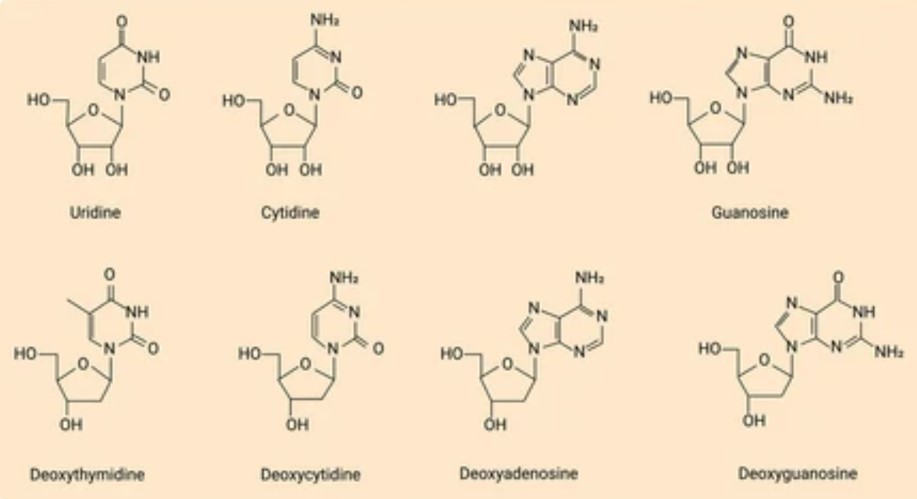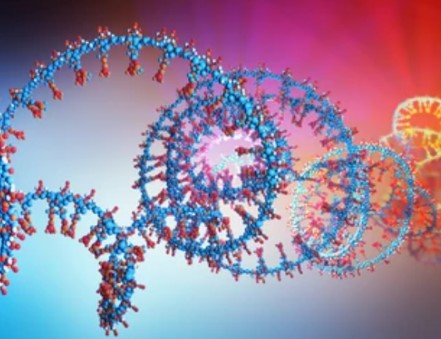Introduction
Nucleoside is a general term for a class of glycosides, consisting of ribose or deoxyribose covalently linked to purine or pyrimidine bases, which is important component of the synthesis of genetic material (DNA and RNA) in living organisms. Nucleosides can be divided into deoxyribonucleosides and ribonucleosides. According to the nucleobase component, deoxyribonucleosides include deoxyadenosine, deoxyguanosine, deoxycytidine and thymidine (or deoxyuridine), and ribonucleosides include adenosine, guanosine, cytidine and uridine. In addition to the above eight types of nucleosides, there are also a variety of naturally modified nucleosides and structurally optimized synthetic modified nucleosides. Nucleosides not only play important physiological functions, but also play a vital role in medicine and molecular biology. For example, modified nucleosides are mainly used in the research and development of various nucleoside drugs (anticancer drugs, antiviral drugs, etc.) and as raw materials for the synthesis of oligonucleotides drugs (also known as small nucleic acid drugs).
 Fig. 1. Structures of several typical nucleosides.
Fig. 1. Structures of several typical nucleosides.
Functions and Applications of Nucleosides
Nucleosides have received extensive attention and research because they are involved in important physiological functions and have great potential applications in the biomedical fields.
Biological Functions of Nucleosides

Nucleosides and their derivatives are biologically ubiquitous substances involved in almost all biochemical processes. They are the monomer units that form nucleic acids and thus play a central role in the expression and storage of genetic information. In addition, they also play a role in energy storage and transport (e.g., adenosine triphosphate (ATP) is an important chemical in cellular energy transport and storage.), cell signaling (e.g., adenosine regulates a variety of physiological processes, such as neurotransmission, immune response, and vascular tone.), the regulation of metabolism, and even play an important role as an antioxidant.
Applications of Nucleosides
Nucleosides occupy a place in the field of medicine, which are mainly manifested in the following two aspects.
(1) Nucleosides can be used as drugs

Nucleosides and modified nucleosides or nucleoside analogs are an important class of drugs used to treat acute and chronic viral infections, and are currently commonly used to treat human immunodeficiency virus (HIV) infection, hepatitis B virus (HBV), hepatitis C virus (HCV), cytomegalovirus (CMV), herpes simplex virus (HSV) and varicella-zoster (VZV) infection. They work by inhibiting viral replication through one or more different mechanisms. In fact, modified nucleosides are a large class of drugs that can also be used as cancer drugs, rheumatological drugs and even bacterial infections drug, as well as sensitizers for radiation and chemotherapy. These drugs are generally safe and well tolerated. The following table lists the representative antiviral nucleoside, and the major virus infections for which they are used are given in parentheses.
| | | |
| | | - Ganciclovir / Valganciclovir (CMV)
|
| | | |
| | | |
(2) Nucleoside can be used to synthesize oligonucleotides drugs

Nucleoside or modified nucleosides can be used not only for the development and production of nucleoside drugs, but also the key raw materials for the synthesis of oligonucleotides drugs. Phosphoramidites are derivatives of natural or synthetic nucleosides and are synthesized by modified with nucleoside, which are a standard chemical used in modern oligonucleotides drugs synthesis. As long as a nucleoside analog contains at least one hydroxy group, the use of the appropriate protecting strategy allows one to convert that to the respective phosphoramidite and to incorporate the latter into synthetic oligonucleotides. In addition, the quality of phosphoramidite is one of the key steps in the quality control strategy of oligonucleotides drugs. Therefore, nucleosides that meet the quality requirements are a key factor in the commercialization of oligonucleotides drugs. At present, various oligonucleotides drugs have been developed based on nucleosides such as Nusinersen, Eteplirsen, Defibrotide, Inotersen, Golodirsen, Viltolarsen, Patisiran, Givosiran, Lumasiran, Inclisiran, Casimersen, etc. These drugs have been widely used in the treatment of genetic and rare diseases, such as Duchenne muscular dystrophy, spinal muscular atrophy, hereditary transthyretin-mediated amyloidosis and so on. The global market size of oligonucleotides drugs has increased from US $0.1 million in 2016 to US $3.25 billion in 2021, with a compound annual growth rate of 217.8%. It is expected that it will continue to increase rapidly in the future. In this context, nucleosides will show great application prospect.
Our company offers various nucleoside and modified nucleoside or nucleoside analogs. Our nucleoside products have high purity, high quality and high stability, which can help the research and development of nucleoside drugs and oligonucleotides drugs. You can click on our product list for a detailed view. At the same time, we also offer product customization according to customer's detailed requirements. If you are interested in our products or have any questions or needs, please feel free to contact us. We will be happy to provide you with support and services.
Related Products
It should be noted that our service is only used for research, not for clinical use.

 Fig. 1. Structures of several typical nucleosides.
Fig. 1. Structures of several typical nucleosides.

